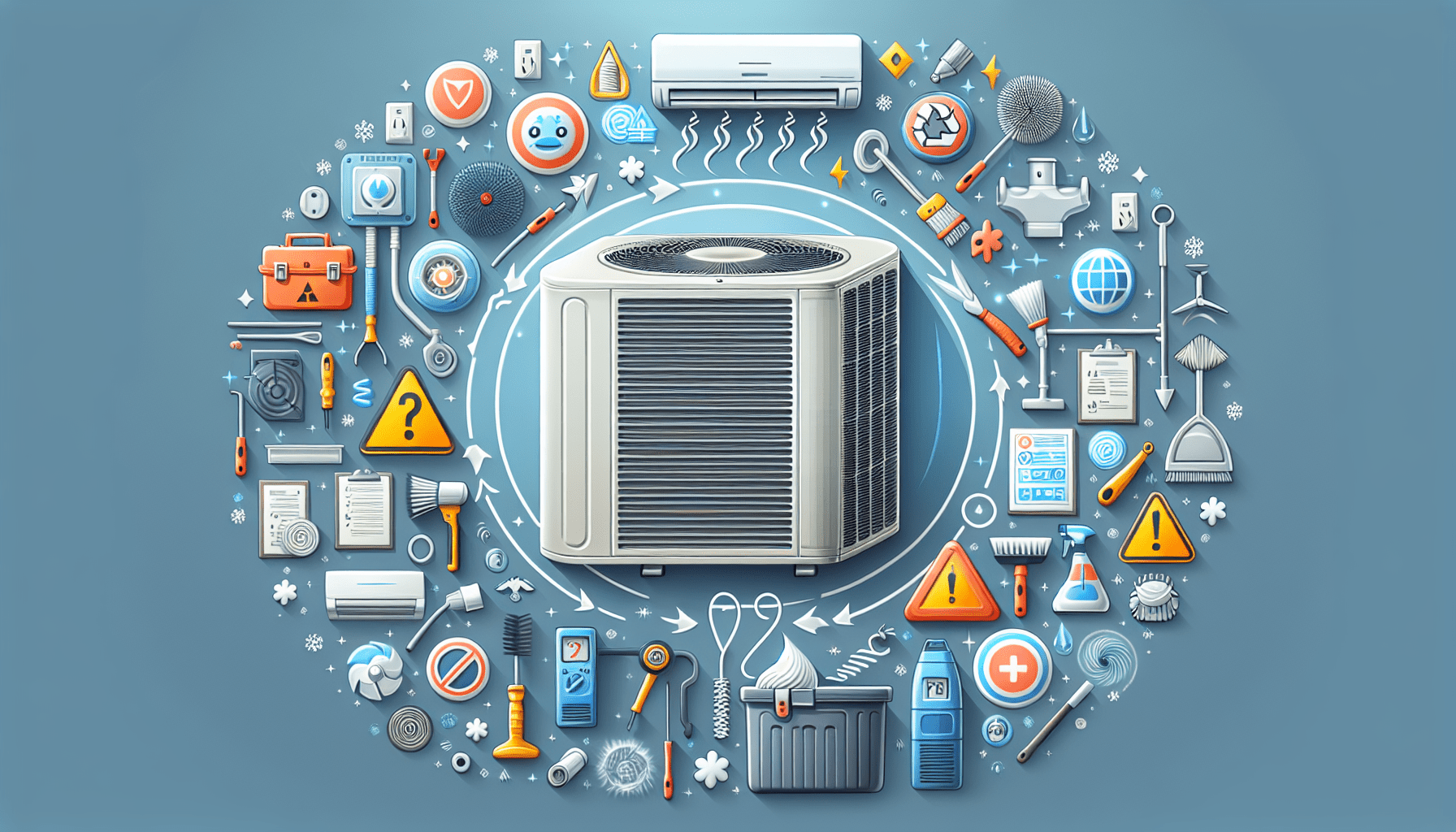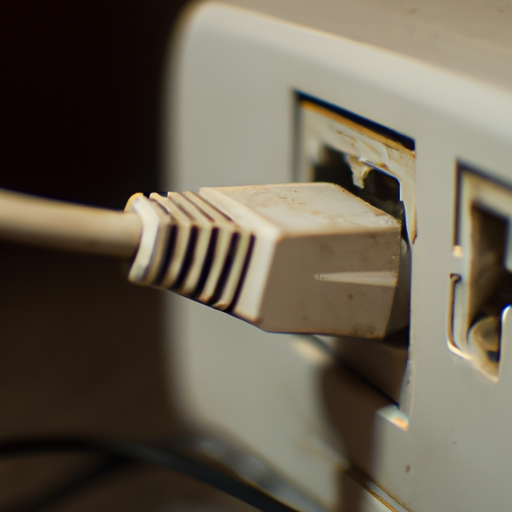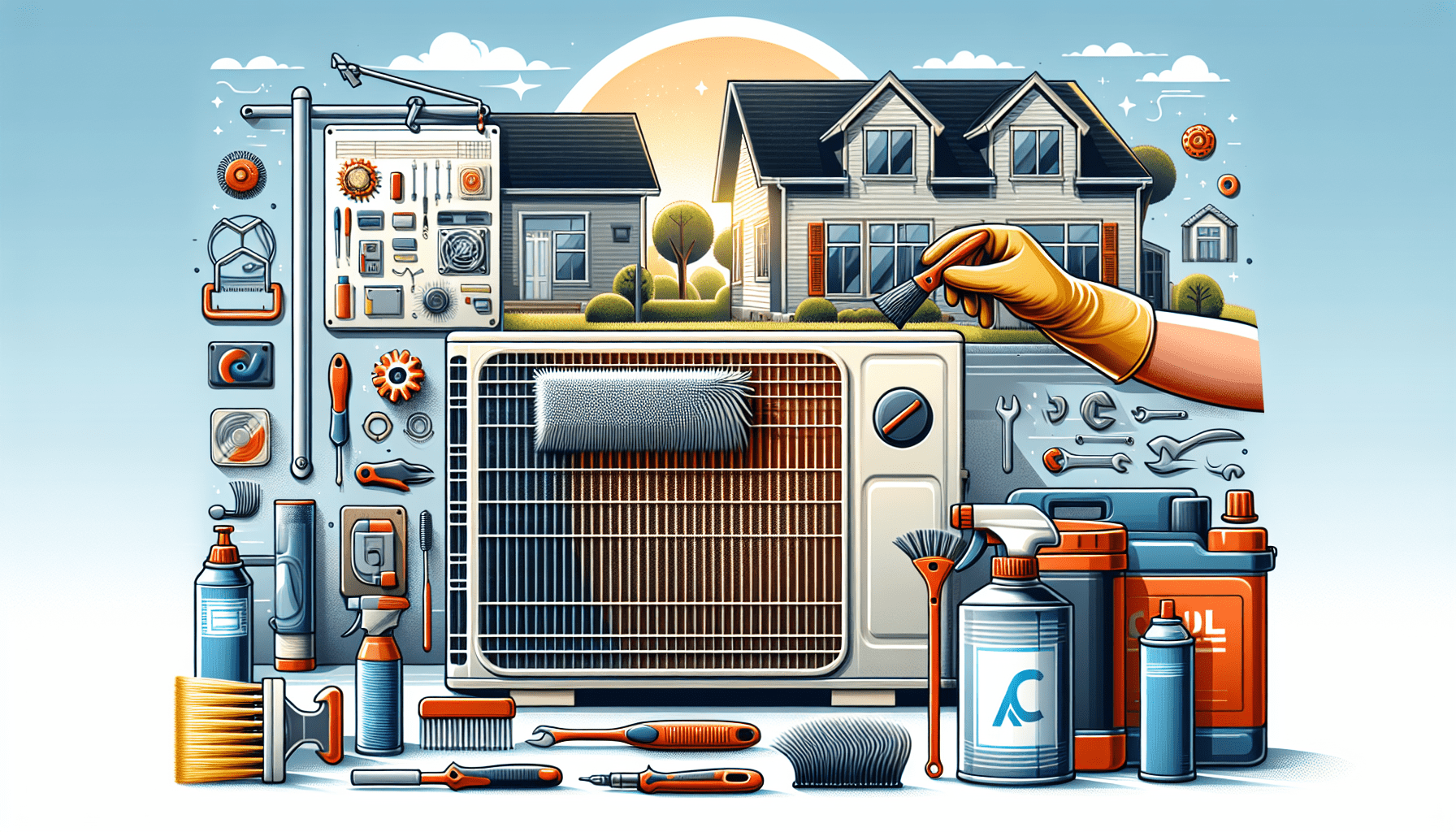Are you looking to beat the summer heat while staying safe in your home? Look no further, because we have compiled the top ten air conditioning safety tips specifically for homeowners like you! Whether you’re a seasoned pro or just getting familiar with your AC unit, these handy tips will ensure that you keep cool and comfortable without any hiccups. From regular maintenance checks to understanding the importance of air flow, we’ve got you covered. Stay tuned to discover the essential guidelines that will keep your AC running smoothly and your household safe.
Understanding the Basics of Air Conditioning Safety
Air conditioning is a staple in many households, especially during the hot summer months. While it provides much-needed relief from the scorching heat, it’s essential to understand the basics of air conditioning safety to ensure your unit operates efficiently and to prevent any accidents or damage.
Knowing how your AC unit functions
Before delving into air conditioning safety, it’s important to have a basic understanding of how your AC unit operates. Air conditioners work by taking in air from the room, cooling it, and expelling it back to create a comfortable indoor environment. They achieve this through a complex process that involves refrigerants, compressors, condensers, and evaporators. Familiarizing yourself with these components will help you better comprehend the potential risks and precautions necessary to maintain a safe air conditioning system.
Becoming familiar with its key components
To ensure the safety of your air conditioning unit, it’s crucial to be familiar with its key components. The compressor, located in the outdoor unit, is responsible for compressing the refrigerant to increase its temperature. The condenser releases the heat absorbed from the indoor air into the outdoor environment. Inside the indoor unit, the evaporator cools the warm air by removing humidity. Understanding the role of each component will help you identify any issues or potential hazards and take appropriate action.
Ensuring you know how to properly turn off and on the unit
Knowing how to properly turn off and on your air conditioning unit is an important safety measure that every homeowner should be aware of. In case of emergencies or maintenance, it is essential to know the location of the main power switch for the unit. Familiarize yourself with the process of shutting down the unit to prevent any accidental harm when handling electrical components or performing maintenance tasks. Similarly, understanding how to safely turn on the unit will help you avoid any mishaps or damage to the system.
Maintenance of the Air Conditioning Unit
Maintaining your air conditioning unit is crucial not only for the longevity of the system but also for the safety of your home and its occupants. Regular maintenance helps identify and address any potential hazards or malfunctions before they escalate into costly repairs or accidents.
Regular checkups of the unit
Scheduling regular checkups for your air conditioning unit is vital for its safe and efficient operation. Professional technicians can inspect the system, identify any issues, and perform necessary repairs or maintenance tasks. Regular checkups also help prevent the accumulation of dirt, debris, or mold, which can adversely affect indoor air quality and pose health hazards.
Importance of cleaning or replacing filters
One of the most important maintenance tasks for your air conditioning unit is regularly cleaning or replacing the filters. Filters capture dust, pollen, and other airborne particles, preventing them from circulating in your home. However, if not properly maintained, dirty or clogged filters can obstruct airflow, strain the system, and reduce its efficiency. Additionally, neglected filters may contribute to increased energy consumption, higher utility bills, and even system breakdowns. Therefore, make it a habit to clean or replace the filters according to the manufacturer’s recommendations.
Checking ducts and vents for blockages
Proper airflow is essential for the optimal functioning of your air conditioning system. Blocked ducts or vents can disrupt the airflow, reduce efficiency, and even lead to system damage. Regularly inspecting and cleaning ducts and vents will ensure that air can flow freely throughout your home. It’s important to remove any obstructions, such as furniture, rugs, or curtains, that might impede the distribution of cool air.
Ensuring there’s no leakage from the unit
Leakage from your air conditioning unit can be a sign of a bigger problem and should not be ignored. Ensure that there are no visible leaks around your unit or in the indoor areas where the system is installed. Water leakage can damage your property, encourage mold growth, and potentially cause electrical hazards. If you notice any signs of leakage, it’s crucial to promptly contact a professional technician to diagnose and repair the issue.

Keeping the Outdoor Unit Safe
The outdoor unit of your air conditioning system is exposed to various environmental elements that can affect its performance and durability. Taking the necessary precautions to protect the unit will help maintain its efficiency and extend its lifespan.
Protecting the unit from harsh weather conditions
Extreme weather conditions, such as heavy rain, hail, or snow, can damage your outdoor unit. To protect it from these elements, consider installing a cover specifically designed for air conditioning units. This cover will shield the unit from direct exposure to rain or snow, preventing any potential water damage or corrosion. However, it’s important to choose a cover that allows for proper airflow and does not become a breeding ground for pests or mold.
Keeping the area around the unit clean and clear
Maintaining a clean and clutter-free environment around your outdoor unit is essential for its safety and performance. Trim any overgrown vegetation, shrubs, or branches that could obstruct the airflow or potentially damage the unit. Regularly remove fallen leaves, dirt, or debris that may accumulate around the unit’s exterior. Maintaining a clear and clean area around the unit helps ensure proper ventilation and prevents any blockages that could lead to overheating or malfunctions.
Monitoring for any animals or pests
Outdoor air conditioning units can attract animals, such as rodents or birds, which may find refuge in or around the unit. It’s important to inspect and monitor the unit regularly for any signs of animal activity. Chewed wires or nests built within the unit can not only cause system malfunctions but also pose fire hazards. If you notice any signs of animal intrusion, contact a professional pest control service to safely remove the pests and prevent further damage.
Proper Placement of the Air Conditioning Unit
The placement of your air conditioning unit plays a significant role in its safety and performance. Proper placement ensures optimal airflow, minimizes safety hazards, and allows for easy maintenance and servicing.
Ensuring it’s installed in a cool and shaded location
To maximize the efficiency of your air conditioning unit, ensure that it is installed in a cool and shaded location. Direct exposure to sunlight can cause the unit to work harder and consume more energy to cool your space. Installing it in a shady area will help maintain a lower ambient temperature around the unit, reducing the strain on the system and promoting energy efficiency.
Making sure the unit isn’t obstructing any pathways
When choosing the location for your air conditioning unit, it’s important to consider the accessibility and safety of the surrounding area. Make sure the unit is placed in a spot that doesn’t obstruct any pathways or create potential hazards. Ensure that there is ample space for technicians to access the unit for maintenance or repairs without any obstructions or restrictions.
Securing the unit properly to prevent any movement
Air conditioning units, especially those located outside, can sometimes vibrate during operation. It’s essential to properly secure the unit to prevent any unnecessary movement or shifting. Loose or unsecured units can not only cause noise disturbances but also increase the risk of accidents or damage. Consult a professional installer to ensure that the unit is securely fastened to minimize vibrations and ensure its stability.

Safe Use of Extension Cords and Plugs
The use of extension cords or improper electrical connections with your air conditioning unit can pose safety hazards. Adhering to best practices when using extension cords and plugs will help prevent electrical accidents or damage to your system.
Avoiding overloading extension cords
Overloading extension cords is a common mistake that can lead to electrical fires or equipment damage. Air conditioning units typically require a significant amount of power to operate, and using an extension cord not rated for the appropriate power load can cause overheating or system failure. To avoid overloading, ensure that the extension cord’s power rating matches or exceeds the unit’s power requirements.
Using appropriately rated cords for AC units
Selecting the correct extension cord for your air conditioning unit is crucial to ensure safe and efficient operation. Look for extension cords labeled specifically for air conditioners or heavy-duty appliance use. These cords are designed to handle the power requirements of air conditioning units and have features such as insulation and grounding for added safety.
Checking regularly for any signs of overheating or damaged cords
Regularly inspecting extension cords and plugs is essential for identifying any signs of wear, damage, or overheating. Frayed or damaged cords, loose connections, or discoloration can indicate potential electrical hazards. If you notice any issues, promptly replace the damaged cords or consult a professional electrician to assess and address the problem.
Climate Control and Temperature Settings
Understanding the optimal temperature settings for your air conditioning unit and utilizing programmable thermostats effectively can enhance both comfort and energy efficiency.
Knowing the optimal temperatures for maximum efficiency
Setting your air conditioning unit at the optimal temperature can significantly impact energy consumption and cost. For most individuals, a temperature setting between 22-24 degrees Celsius (72-75 degrees Fahrenheit) provides a balance between comfort and energy efficiency. Keeping the temperature within this range helps minimize energy usage while ensuring a cool indoor environment.
Understanding how to use programmable thermostats
Programmable thermostats offer enhanced control over your air conditioning system by allowing you to set specific temperature schedules for different times of the day. Utilizing programmable thermostats effectively can lead to significant energy savings. Take advantage of the programming features to adjust temperature settings based on your daily routine, such as higher temperatures when nobody is home and cooler temperatures during the evenings or nights.
Avoiding rapid temperature changes
While it may be tempting to rapidly lower the temperature to achieve immediate comfort, it’s important to avoid rapid temperature changes. Drastic temperature fluctuations can strain the air conditioning system, leading to increased energy consumption, reduced efficiency, and potential system malfunctions. Instead, set your thermostat at a comfortable temperature and allow the system time to cool the space gradually.
Fire Safety and Air Conditioning Units
Fire safety is a critical aspect of maintaining a safe environment for your air conditioning unit. Taking proactive measures can help prevent potential fire hazards and protect your home and loved ones.
Keeping flammable materials away from the unit
Flammable materials, such as papers, chemicals, or cleaning agents, should never be stored near your air conditioning unit. These materials can easily ignite if exposed to heat or sparks from the system. It’s crucial to maintain a clear area around the unit, free from any potentially combustible substances, to minimize the risk of fire.
Regularly checking the unit for any electrical issues
Regularly inspecting your air conditioning unit for any signs of electrical issues is essential for fire prevention. Look out for frayed or damaged wires, loose connections, or any burning smells. If you notice any abnormalities, promptly contact a professional technician to diagnose and address the electrical problem. Ignoring such issues can lead to electrical malfunctions and potential fire hazards.
Knowing what to do in case of an AC-related fire
In the unfortunate event of an air conditioning-related fire, it’s crucial to know how to react swiftly and safely. Familiarize yourself with the location of fire extinguishers in your home and how to use them. If a fire breaks out near your air conditioning unit, immediately turn off the system, evacuate the premises, and contact emergency services. Never attempt to extinguish a large fire on your own or put yourself at risk.
Child and Pet Safety Around Air Conditioning Units
Air conditioning units can pose potential dangers to children and pets if proper precautions are not taken. Ensuring their safety is paramount to create a secure environment for everyone in your household.
Teaching children about the dangers of playing near the unit
Children should be educated about the potential dangers of playing near the air conditioning unit. The outdoor unit contains moving parts and electrical components that can cause harm or injury. Educate your children about the risks of climbing, touching, or tampering with the unit to avoid accidents. Additionally, consider installing a protective barrier around the unit to physically prevent access.
Keeping the unit inaccessible to pets
Pets, especially curious dogs or cats, may also be attracted to the air conditioning unit. Ensure that the unit remains inaccessible to them to prevent any potential harm or damage. Consider using fencing or barriers to keep pets away from the unit. Additionally, make sure any exposed electrical wires are safely covered or hidden to prevent pets from chewing on them.
Covering cords and outlets to prevent accidents
To further ensure child and pet safety around air conditioning units, cover any exposed cords or outlets. Cord covers can prevent accidental tripping, entanglement, or damage to cords. Outlet covers or tamper-resistant outlets can also prevent children or pets from inserting objects into the outlets, reducing the risk of electrical accidents.
Hiring Professional Help for Maintenance
While DIY maintenance tasks such as regular cleaning and filter replacement are essential, there are instances when professional help is necessary to ensure the safety and optimum performance of your air conditioning unit.
Recognizing when DIY maintenance isn’t enough
While regular maintenance tasks can go a long way in keeping your air conditioning unit in good shape, there are certain situations where professional help is required. If you encounter complex issues, strange odors, unusual noises, or repeated failures, it’s best to seek the expertise of a professional technician. They have the knowledge and experience to diagnose and repair any problems accurately, ensuring your system’s safety and efficiency.
Choosing the right professionals for the job
When hiring professionals for air conditioning maintenance or repairs, it’s important to choose reputable and experienced service providers. Look for companies that are licensed, insured, and have positive customer reviews. Check if they specialize in air conditioning systems and have technicians trained to handle your specific make and model. Hiring the right professionals gives you peace of mind knowing that your unit is in capable hands.
Understanding the benefits of regular professional checkups
Regular professional checkups for your air conditioning unit offer several benefits that ensure its safety and longevity. Professional technicians can identify and address potential issues, clean components effectively, and optimize system performance. Additionally, they can provide valuable advice on maximizing energy efficiency and help you stay on top of the latest safety recommendations or regulations.
Staying Updated with Air Conditioning Safety Regulations
As a responsible homeowner, it’s important to stay updated with air conditioning safety regulations to comply with local codes, ensure the safety of your household, and avoid any legal repercussions.
Keeping abreast of latest safety guidelines and regulations
Safety regulations related to air conditioning units may vary by location and change over time. It’s crucial to stay informed about the latest safety guidelines and regulations issued by relevant authorities or government bodies. Regularly check official websites, attend safety awareness programs, or consult with professionals to ensure you are up to date with the best practices and requirements for air conditioning safety.
Adhering to local codes and regulations
Each locality may have specific codes or regulations regarding the installation, use, and maintenance of air conditioning units. Adhering to these local codes is not only a legal requirement but also ensures the safety of your unit and home. Familiarize yourself with the regulations applicable to your area, and make sure any installations or modifications to your air conditioning system comply with these codes.
Taking part in air conditioning safety awareness programs
Participating in air conditioning safety awareness programs can provide valuable insights and knowledge on maintaining a safe air conditioning system. These programs often cover topics such as preventive maintenance, energy efficiency, and safety precautions. Attend workshops, webinars, or seminars organized by reputable institutions or organizations to stay informed and share experiences with fellow homeowners.
Knowing your rights and responsibilities as a homeowner
Understanding your rights and responsibilities as a homeowner when it comes to air conditioning safety is essential. Familiarize yourself with any warranties or guarantees associated with your system and follow the manufacturer’s instructions for installation, use, and maintenance. Additionally, ensure that you have appropriate insurance coverage to protect against any potential accidents or damages related to your air conditioning unit.
In conclusion, understanding the basics of air conditioning safety is essential for every homeowner. By knowing how your AC unit functions, maintaining it regularly, keeping the outdoor unit safe, placing it properly, using extension cords and plugs safely, controlling temperature settings, implementing fire safety measures, ensuring child and pet safety, hiring professional help when needed, staying updated with regulations, and taking part in safety programs, you can create a safe and comfortable environment for your home. By following these Air Conditioning Safety Tips, you can enjoy the benefits of a well-maintained and safe air conditioning system for years to come.





